Welcome to ETOX, the Environmental Toxicology Graduate Program at UCR
Mission & Vision
The Environmental Toxicology Graduate Program offers an integrated interdisciplinary course of study leading to the M.S. or Ph.D. degree. The program is designed to teach students the scientific principles of toxicology and it focuses primarily upon the biology, chemistry, and mechanisms by which xenobiotics and natural toxins interact with the biosphere, including humans. Studies on mechanisms of toxicity complement research directed towards understanding the movement of toxics through soil, water, and air and for the development of procedures to reduce pollution and clean up contaminated sites.
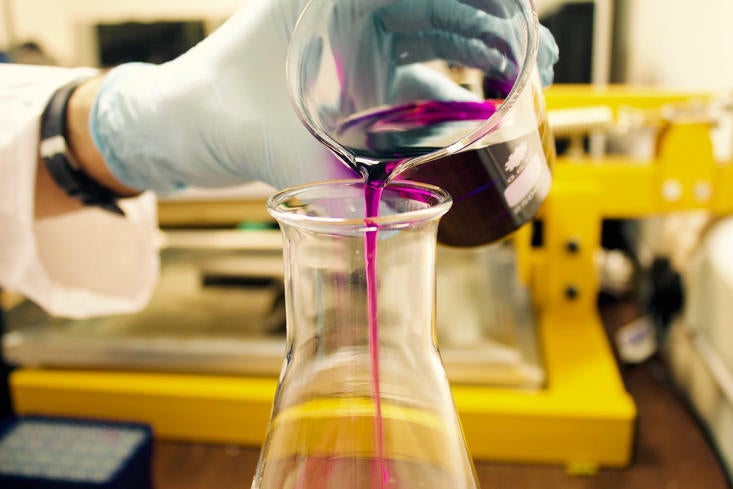
Featured Faculty
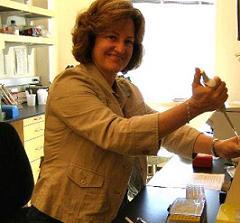
Dr. Margarita Currás-Collazo
Persistent organic pollutants in the indoor and outdoor environment contaminate breast milk and produce adverse effects on offspring’s cognitive ability, social behaviors and metabolic health that persist into adulthood. Using an in vivo mouse model we aim to characterize the reprogrammed phenotypes, at the molecular, neurochemical, circuit and behavioral level, produced by early developmental exposure to
polybrominated diphenyl ethers (PBDEs) that are relevant to neurodevelopmental disorders such as autism. Other studies are focused on gut-brain interactions that underlie chronic fatigue and cognitive impairments in a mouse model of Gulf War Illness (GWI). Using gut sensory deafferentation and probiotic therapy with our UCR collaborators we aim to clarify the pathophysiology/etiology underlying GWI.
polybrominated diphenyl ethers (PBDEs) that are relevant to neurodevelopmental disorders such as autism. Other studies are focused on gut-brain interactions that underlie chronic fatigue and cognitive impairments in a mouse model of Gulf War Illness (GWI). Using gut sensory deafferentation and probiotic therapy with our UCR collaborators we aim to clarify the pathophysiology/etiology underlying GWI.
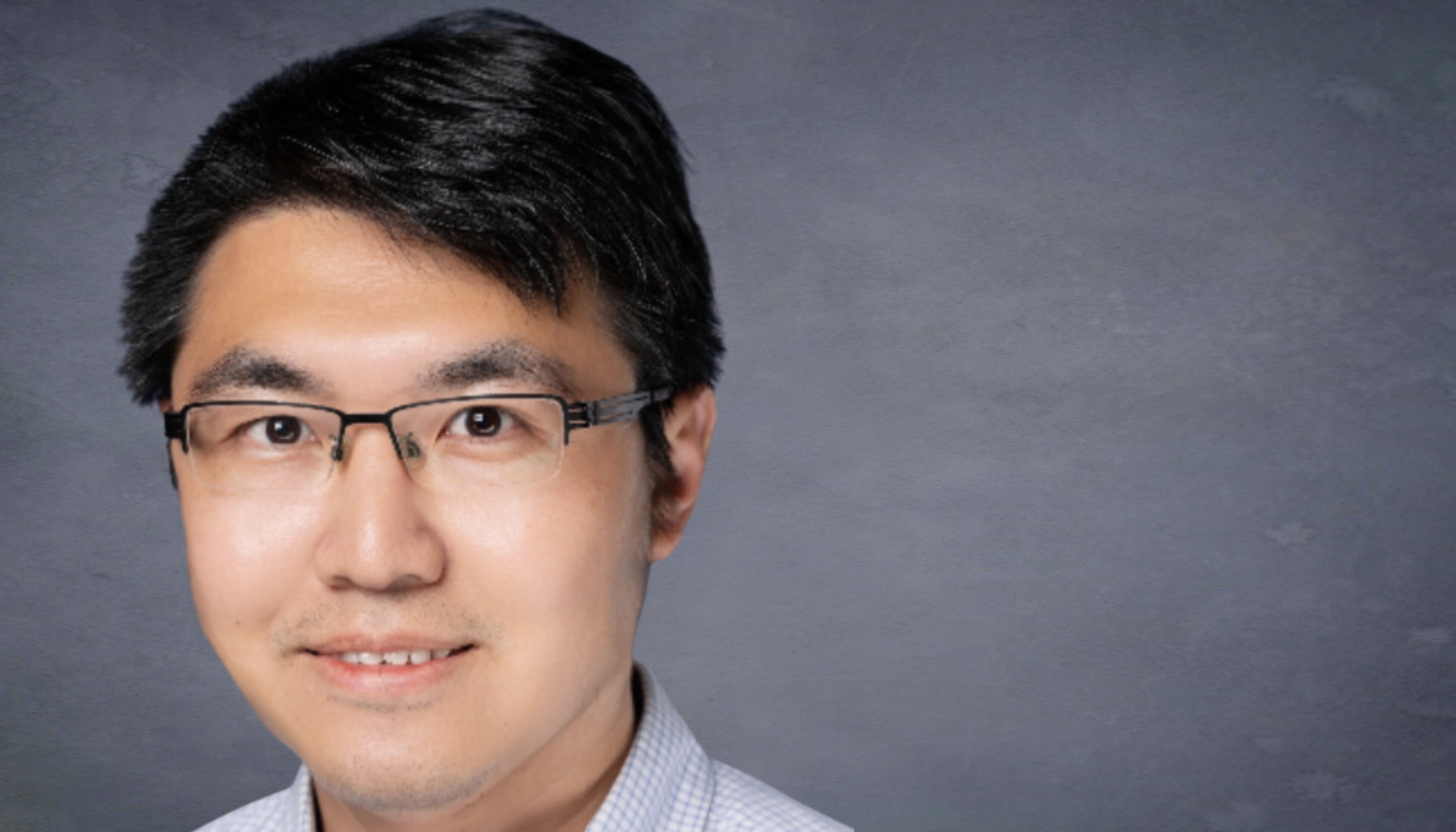
Dr. Wei-Chun Chou
The rise of emerging environmental chemicals and the growing complexity of toxicological assessments have driven a significant transition towards the development of computational modeling in next-generation risk assessment. My study focus lies in developing innovative computational approaches to advance quantitative human health risk assessment for environmental chemicals. We established a cutting-edge physiologically based pharmacokinetic (PBPK) model to simulate the intricate interactions between chemicals and the human body. This model provides deep insights into the understanding of chemical toxicokinetics within the human body by describing their absorption, distribution, metabolism, and elimination (ADME) processes. Moreover, leveraging the power of artificial intelligence and machine learning, we established robust quantitative structure-activity relationship (QSAR) models to empower the prediction of toxicities (Tox) for both known and unknown chemicals and offer invaluable insight into potential hazards. By employing these advanced computational methodologies, our overarching objective is to illuminate the ADME-tox profiles of environmental chemicals, thereby enhancing our understanding of human health risk assessment.

Dr. Daniel Petras
Daniel Petras is biochemist with a background in bioanalytical and natural product chemistry. He received his master’s degree in biotechnology from the University of Applied Science Darmstadt, Germany, and his PhD in biochemistry from the Technical University Berlin, Germany, in 2016. His thesis in the group of Roderich Suessmuth focused on the discovery, structure elucidation and biosynthesis of different peptide toxins, including albicidins, a group of potent antibiotics. For his postdoctoral research, Daniel joined the lab of Pieter Dorrestein at the University of California San Diego, where he focused on the development of large-scale environmental metabolomics methods. In 2021, Daniel launched the Functional Metabolomics Lab at the University of Tübingen as an independent Junior Research Group. In 2024, he and his group moved to the University of California Riverside, where he started as Assistant Professor of Biochemistry. The work of his group focuses on the development and application of mass spectrometry-based methods to visualize and functionally assess chemical exchange within microbial communities.
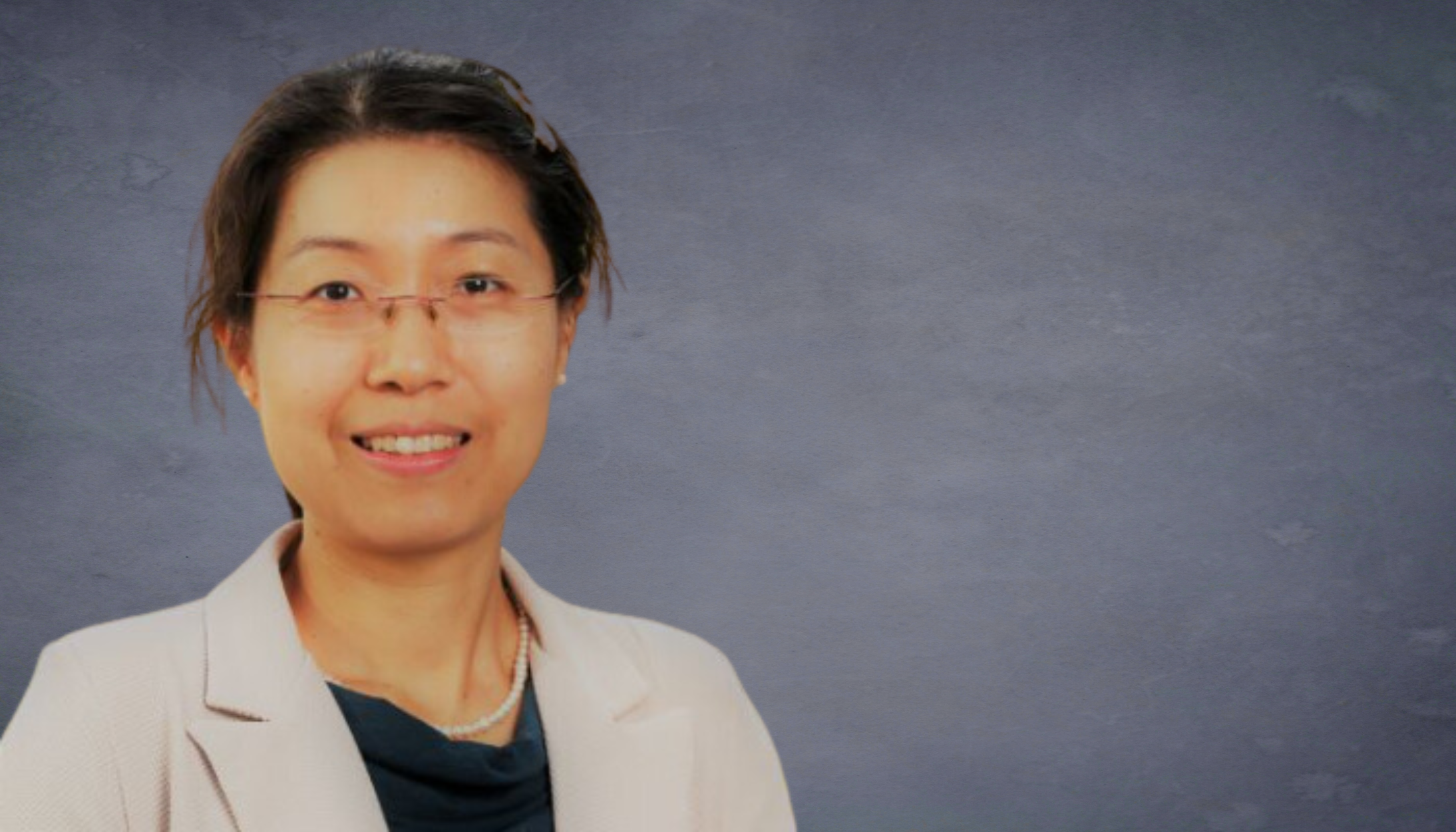
Dr. Yujie Men
Dr. Yujie Men is currently an Associate Professor at the University of California, Riverside. She earned her Ph.D. degree of Civil and Environmental Engineering, at the University of California, Berkeley, and B.S. and M.S. degrees of Environmental Engineering at Tsinghua University. She did her postdoc research at UC, Berkeley and Eawag in Switzerland. Before she joined UCR in 2019, she was an Assistant Professor at the University of Illinois at Urbana-Champaign. She was promoted to Associate Professor in July 2023. Dr. Men has expertise in environmental microbiology, molecular biology, and analytical chemistry. Her research interests focus on the interactions between microbes and the environment impacted by contaminants of emerging concerns (CECs). Her research projects include microbial transformation of CECs, particularly per- and polyfluoroalkyl substances, as well as the impact of CECs on the development and transmission of antibiotic resistance in agricultural environments. She has published a series of peer-reviewed articles in those two research directions in top-ranked journals of the field. She was an NSF-CAREER Award recipient in 2021. She also serves as the Editor of Water Research X and Journal of Environmental Chemical Engineering.
Email: ymen@engr.ucr.edu
Email: ymen@engr.ucr.edu

Dr. Haizhou Liu
Our group's research is focused on the understanding and application of aquatic chemical processes to improve water quality, design treatment processes and provide more reliable water supplies. We face great challenges on the availability of high-quality water resources. Aquatic chemistry plays a pivotal role in both the engineered and natural systems of water cycle. Our research focuses on the applications of aquatic chemistry principles in engineered applications such as water purification, wastewater reclamation, and to understand how various redox and interfacial chemical processes influence water quality and quantity. We integrate fundamental principles of surface chemistry, electrochemistry and chemical kinetics modeling with advanced analytical capacities to address these issues. In addition, we are active in outreach activities to raise public awareness on water issues. If you would like to learn more about us, please take a look at our website, check our research opportunity webpage and feel free to contact me for more information. We are always excited to hear from colleagues and potential students who share an interest in these interdisciplinary fields.

Dr. Yinsheng Wang
We are pleased to announce that the competitive renewal for our NIEHS T32 Training Grant in Environmental Toxicology was awarded on September 10, 2021, thanks to the great effort made by Distinguished Professor Yinsheng Wang, who is the director of this training program. The T32 program supports predoctoral and/or postdoctoral training; and is designed to provide trainees with high-quality research training and a curriculum of study in subjects related to environmental toxicology, chemistry, statistics, research ethics, etc. The T32 training grant offers stipend and tuition support for the appointed trainees. Trainees must be citizens or permanent residents of the United States. All trainees are required to participate in program seminars and annual symposium and present their research works.
In this round of renewal, we are awarded with 7 predoc and 2 postdoc slots. The director of the program, Prof. Wang, and the Internal Steering Committee will select trainees from the nomination
pool; and the nomination process typically starts in June each year. Nomination can be made by the faculty members associated with this grant.
For more information about the T32 program, please contact the training program director, Prof. Yinsheng Wang.
In this round of renewal, we are awarded with 7 predoc and 2 postdoc slots. The director of the program, Prof. Wang, and the Internal Steering Committee will select trainees from the nomination
pool; and the nomination process typically starts in June each year. Nomination can be made by the faculty members associated with this grant.
For more information about the T32 program, please contact the training program director, Prof. Yinsheng Wang.
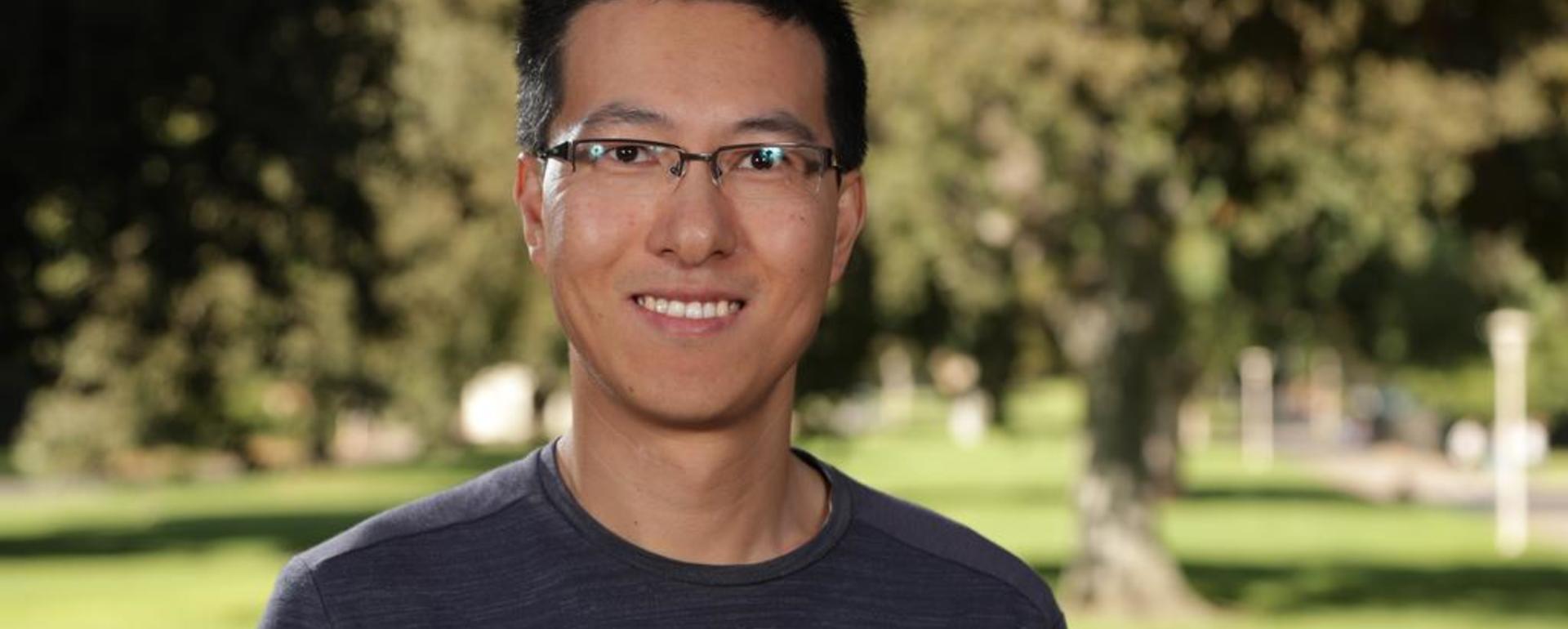
Dr. Linlin Zhao
"The flow of genetic information is critically dependent on the structure and integrity of DNA. DNA is challenged by reactive chemicals from endogenous and environmental sources, which produces a plethora of DNA modifications. Certain types of DNA modification play a role in genetic regulation, whereas others can be harmful to organismal health. The overarching goal of our research is to understand the chemical and molecular mechanisms by which DNA-binding proteins/enzymes interact with chemically modified DNA and maintain genomic stability. We combine biochemical, biophysical, computational, and cellular approaches to decipher the basis of DNA damage, replication, and repair in the context of nuclear and mitochondrial genomes."

Dr. Margarita Currás-Collazo
Persistent organic pollutants in the indoor and outdoor environment contaminate breast milk and produce adverse effects on offspring’s cognitive ability, social behaviors and metabolic health that persist into adulthood. Using an in vivo mouse model we aim to characterize the reprogrammed phenotypes, at the molecular, neurochemical, circuit and behavioral level, produced by early developmental exposure to
polybrominated diphenyl ethers (PBDEs) that are relevant to neurodevelopmental disorders such as autism. Other studies are focused on gut-brain interactions that underlie chronic fatigue and cognitive impairments in a mouse model of Gulf War Illness (GWI). Using gut sensory deafferentation and probiotic therapy with our UCR collaborators we aim to clarify the pathophysiology/etiology underlying GWI.
polybrominated diphenyl ethers (PBDEs) that are relevant to neurodevelopmental disorders such as autism. Other studies are focused on gut-brain interactions that underlie chronic fatigue and cognitive impairments in a mouse model of Gulf War Illness (GWI). Using gut sensory deafferentation and probiotic therapy with our UCR collaborators we aim to clarify the pathophysiology/etiology underlying GWI.

Dr. Wei-Chun Chou
The rise of emerging environmental chemicals and the growing complexity of toxicological assessments have driven a significant transition towards the development of computational modeling in next-generation risk assessment. My study focus lies in developing innovative computational approaches to advance quantitative human health risk assessment for environmental chemicals. We established a cutting-edge physiologically based pharmacokinetic (PBPK) model to simulate the intricate interactions between chemicals and the human body. This model provides deep insights into the understanding of chemical toxicokinetics within the human body by describing their absorption, distribution, metabolism, and elimination (ADME) processes. Moreover, leveraging the power of artificial intelligence and machine learning, we established robust quantitative structure-activity relationship (QSAR) models to empower the prediction of toxicities (Tox) for both known and unknown chemicals and offer invaluable insight into potential hazards. By employing these advanced computational methodologies, our overarching objective is to illuminate the ADME-tox profiles of environmental chemicals, thereby enhancing our understanding of human health risk assessment.

Dr. Daniel Petras
Daniel Petras is biochemist with a background in bioanalytical and natural product chemistry. He received his master’s degree in biotechnology from the University of Applied Science Darmstadt, Germany, and his PhD in biochemistry from the Technical University Berlin, Germany, in 2016. His thesis in the group of Roderich Suessmuth focused on the discovery, structure elucidation and biosynthesis of different peptide toxins, including albicidins, a group of potent antibiotics. For his postdoctoral research, Daniel joined the lab of Pieter Dorrestein at the University of California San Diego, where he focused on the development of large-scale environmental metabolomics methods. In 2021, Daniel launched the Functional Metabolomics Lab at the University of Tübingen as an independent Junior Research Group. In 2024, he and his group moved to the University of California Riverside, where he started as Assistant Professor of Biochemistry. The work of his group focuses on the development and application of mass spectrometry-based methods to visualize and functionally assess chemical exchange within microbial communities.

Dr. Yujie Men
Dr. Yujie Men is currently an Associate Professor at the University of California, Riverside. She earned her Ph.D. degree of Civil and Environmental Engineering, at the University of California, Berkeley, and B.S. and M.S. degrees of Environmental Engineering at Tsinghua University. She did her postdoc research at UC, Berkeley and Eawag in Switzerland. Before she joined UCR in 2019, she was an Assistant Professor at the University of Illinois at Urbana-Champaign. She was promoted to Associate Professor in July 2023. Dr. Men has expertise in environmental microbiology, molecular biology, and analytical chemistry. Her research interests focus on the interactions between microbes and the environment impacted by contaminants of emerging concerns (CECs). Her research projects include microbial transformation of CECs, particularly per- and polyfluoroalkyl substances, as well as the impact of CECs on the development and transmission of antibiotic resistance in agricultural environments. She has published a series of peer-reviewed articles in those two research directions in top-ranked journals of the field. She was an NSF-CAREER Award recipient in 2021. She also serves as the Editor of Water Research X and Journal of Environmental Chemical Engineering.
Email: ymen@engr.ucr.edu
Email: ymen@engr.ucr.edu

Dr. Haizhou Liu
Our group's research is focused on the understanding and application of aquatic chemical processes to improve water quality, design treatment processes and provide more reliable water supplies. We face great challenges on the availability of high-quality water resources. Aquatic chemistry plays a pivotal role in both the engineered and natural systems of water cycle. Our research focuses on the applications of aquatic chemistry principles in engineered applications such as water purification, wastewater reclamation, and to understand how various redox and interfacial chemical processes influence water quality and quantity. We integrate fundamental principles of surface chemistry, electrochemistry and chemical kinetics modeling with advanced analytical capacities to address these issues. In addition, we are active in outreach activities to raise public awareness on water issues. If you would like to learn more about us, please take a look at our website, check our research opportunity webpage and feel free to contact me for more information. We are always excited to hear from colleagues and potential students who share an interest in these interdisciplinary fields.

Dr. Yinsheng Wang
We are pleased to announce that the competitive renewal for our NIEHS T32 Training Grant in Environmental Toxicology was awarded on September 10, 2021, thanks to the great effort made by Distinguished Professor Yinsheng Wang, who is the director of this training program. The T32 program supports predoctoral and/or postdoctoral training; and is designed to provide trainees with high-quality research training and a curriculum of study in subjects related to environmental toxicology, chemistry, statistics, research ethics, etc. The T32 training grant offers stipend and tuition support for the appointed trainees. Trainees must be citizens or permanent residents of the United States. All trainees are required to participate in program seminars and annual symposium and present their research works.
In this round of renewal, we are awarded with 7 predoc and 2 postdoc slots. The director of the program, Prof. Wang, and the Internal Steering Committee will select trainees from the nomination
pool; and the nomination process typically starts in June each year. Nomination can be made by the faculty members associated with this grant.
For more information about the T32 program, please contact the training program director, Prof. Yinsheng Wang.
In this round of renewal, we are awarded with 7 predoc and 2 postdoc slots. The director of the program, Prof. Wang, and the Internal Steering Committee will select trainees from the nomination
pool; and the nomination process typically starts in June each year. Nomination can be made by the faculty members associated with this grant.
For more information about the T32 program, please contact the training program director, Prof. Yinsheng Wang.

Dr. Linlin Zhao
"The flow of genetic information is critically dependent on the structure and integrity of DNA. DNA is challenged by reactive chemicals from endogenous and environmental sources, which produces a plethora of DNA modifications. Certain types of DNA modification play a role in genetic regulation, whereas others can be harmful to organismal health. The overarching goal of our research is to understand the chemical and molecular mechanisms by which DNA-binding proteins/enzymes interact with chemically modified DNA and maintain genomic stability. We combine biochemical, biophysical, computational, and cellular approaches to decipher the basis of DNA damage, replication, and repair in the context of nuclear and mitochondrial genomes."

Dr. Margarita Currás-Collazo
Persistent organic pollutants in the indoor and outdoor environment contaminate breast milk and produce adverse effects on offspring’s cognitive ability, social behaviors and metabolic health that persist into adulthood. Using an in vivo mouse model we aim to characterize the reprogrammed phenotypes, at the molecular, neurochemical, circuit and behavioral level, produced by early developmental exposure to
polybrominated diphenyl ethers (PBDEs) that are relevant to neurodevelopmental disorders such as autism. Other studies are focused on gut-brain interactions that underlie chronic fatigue and cognitive impairments in a mouse model of Gulf War Illness (GWI). Using gut sensory deafferentation and probiotic therapy with our UCR collaborators we aim to clarify the pathophysiology/etiology underlying GWI.
polybrominated diphenyl ethers (PBDEs) that are relevant to neurodevelopmental disorders such as autism. Other studies are focused on gut-brain interactions that underlie chronic fatigue and cognitive impairments in a mouse model of Gulf War Illness (GWI). Using gut sensory deafferentation and probiotic therapy with our UCR collaborators we aim to clarify the pathophysiology/etiology underlying GWI.



AWARDS & RECOGNITION
Dr. Yinsheng Wang

- 2021 NIEHS T32 Training Grant in Environmental Toxicology
- 2018 EAS Award for Outstanding Achievements in Mass Spectrometry
- Biemann Medal, the American Society for Mass Spectrometry 2013
- Inaugural Chemical Research in Toxicology Young Investigator Award, Division of Chemical Toxicology of American Chemical Society and Chemical Research in Toxicology 2012
- Fellow, American Association for the Advancement of Sciences 2012
- Research Award, the American Society for Mass Spectrometry 2005



